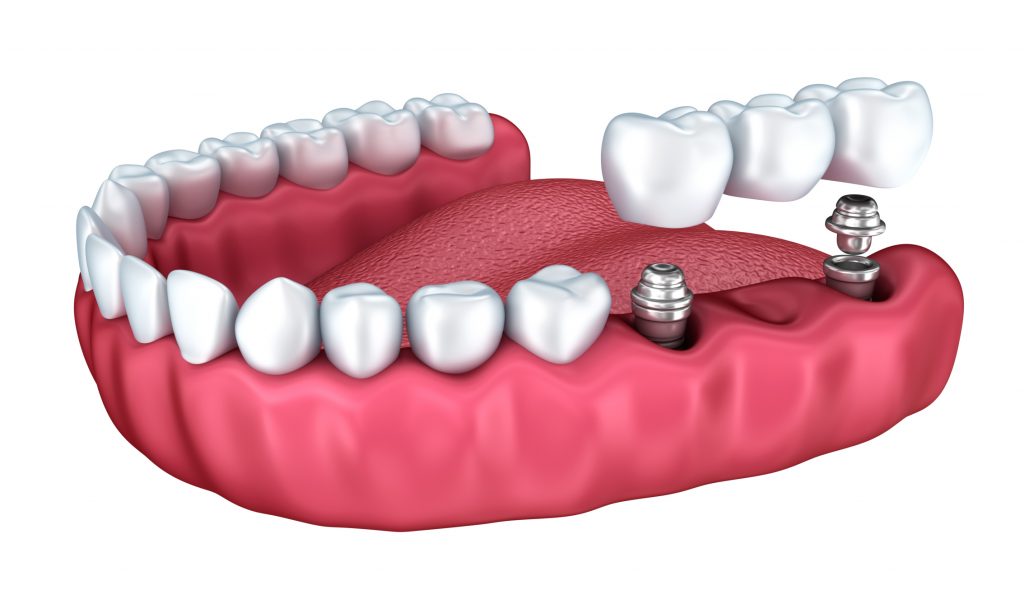
Because our smile is the first thing a stranger sees upon meeting us, it is a real bummer when we have a tooth that has become rotted, broken or lost. It becomes an issue, not only socially, but it can also cause issues speaking and other daily activities. To be fair, it doesn’t matter how you lost your teeth, the important issue is getting it fixed as soon as possible in order to deflect any further dental issues, like an increased risk for gum disease, malocclusions, jaw pain, etc. But how does a flawed tooth get repaired? There are actually quite a few options, depending on your individual set of circumstances. Here’s a quick review:
Dental implants. Because they’re surgically implanted, dental implants offer a long-term and durable solution to those who have a few missing teeth. The typical process of getting an implant involves three stages that take place over several weeks and even months. The implant is surgically buried, the implant is checked for proper integration and the dentist installs the prosthetic tooth with new teeth.
Bridges. Dental bridges are, basically, dental appliances used to bridge the gap left by missing teeth by relying on the adjacent teeth for support. The effect on the adjacent teeth is something worth taking note of if you plan to get a dental bridge to replace your missing teeth.
Dentures. For those who are missing more than a couple of teeth, dentures may be your only hope. Dentures are removable appliances with artificial teeth and come in as partial dentures and full dentures.
If you would like more information about options for missing teeth, call Dr. Cabrera in Chicago, IL at 312-994-7939 or visit www.perioimplantchicago.com.
Dr. Peter O. Cabrera proudly serves Chicago and all surrounding areas.

